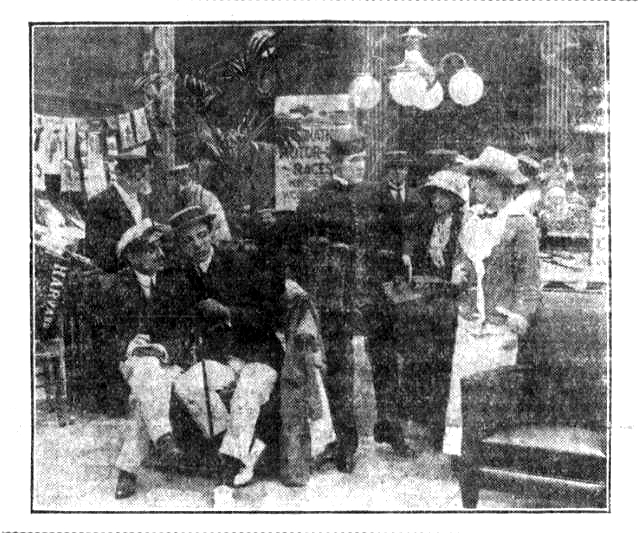Guy Hedlund was a Connecticut native made famous through his roles as a theater and motion picture actor. Born in Portland on August 21, 1884, Hedlund served as a newspaper man, a tender on a cattle boat, and a lumber jack before embarking on a career in show business. Between 1906 and 1947, he appeared in 120 films and used his celebrity status to promote such varied causes as education, automobile safety, and American isolationism.
Hedlund’s father was a yacht captain when one of his patron’s guests took an interest in Guy’s writings and procured a position for him at the Commercial Advertiser (later known as the New York Globe). Having heard stories about the mistreatment cattlemen endured on ocean voyages, Hedlund got a job on a cattle boat headed for Europe in hopes of publishing the account of his adventure in the newspaper. Upon finding out that the ship lacked enough supplies to comfortably complete the journey, Hedlund attempted to incite a mutiny but found himself on the losing end of an altercation with members of the ship’s crew. He was never able to get the story published.
Upon arriving in England with very little money, Hedlund attempted to use a well-developed singing voice to bluff his way into a job in a local theater. Telling the theater manager he was an American singer, Hedlund managed to land an acting job and began performing in plays all across England, Ireland, and Scotland. While in Scotland, he married Edith Randle, an accomplished stage performer who made regular appearances in Hartford, Connecticut.
From Stage to Film to WTIC Radio
Returning to Connecticut, Hedlund continued his theater performances until the death of fellow actor and friend Richard Mansfield in 1907. After the loss of Mansfield, Hedlund turned to film. Success came relatively quickly. In 1910 Hedlund made $5 a day as an actor, and by 1913 he had negotiated his way up to $50 a day. He acted under the direction of David Wark Griffith until taking an $80-per-day job with Pathé Films, just missing a chance to star in Griffith’s epic and controversial film, Birth of a Nation.
Seeing the growth of the film industry as more than just a financial windfall, Hedlund believed in the educational potential of motion pictures. Among his accomplishments in this genre was a movie on safety made for the motor vehicle department and an educational film entitled, Where Are Your Children?
In 1931, Hedlund began a 10-year run on WTIC radio in Hartford with The Guy Hedlund Players. Hedlund managed a dozen professional actors, a music library, sound department, and an engineering staff as part of his performances. Throughout the course of his decade on radio, Hedlund was also a weekend farmer (having bought a farm in Hadlyme) and wrote numerous editorials to the Hartford Courant on such varied topics as automobile safety, race relations, and capital punishment.
Actor Opposes US Entry into WWII but Aids Returning Vets
In 1939, with hostilities breaking out overseas, Hedlund organized his neighbors into a citizens’ committee against American military intervention in Europe. Of the opinion that the United States was too imperialistic, Hedlund made a $50 wager in early 1941 with Congressman Herman P. Koppleman. He bet Koppleman that if Congress passed the Lend-Lease Act as it was, the US would be at war in under four months. Giving Koppleman 10 to 1 odds, and thus asking for only a $5 stake in return, Hedlund pleaded with Koppleman to do everything in his power to keep the US out of the war.
By the war’s end, Hedlund lived in California. Despite his initial opposition to the war, and the negative publicity from a bitter divorce, Hedlund still managed to boost his public image through the help he offered disabled war veterans. Offering financial support when possible and organizing fundraising benefits, he felt a real sense of patriotic duty in helping returning soldiers acclimate to domestic life. Hedlund spent his remaining years in Culver City, California, before passing away in December of 1964.









